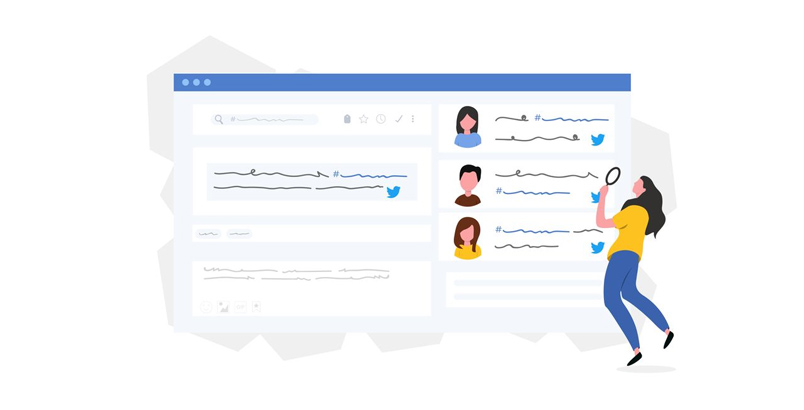In the ever-evolving landscape of digital marketing, social media listening has emerged as a game-changing tool for businesses aiming to understand, engage, and adapt to their audience’s needs effectively. By tuning in to the vast digital chatter, companies can gain invaluable insights into consumer preferences, market trends, and competitor strategies. In this article, we explore real-world social media listening examples that demonstrate its transformative impact on businesses across diverse sectors.
Social Media Listening Examples: How Businesses Leverage Digital Insights for Success

1. Understanding Customer Sentiments:
Social media listening tools enable businesses to gauge customer sentiments in real-time. By analyzing social media posts, comments, and reviews, companies can identify positive sentiments and capitalize on them, while also addressing negative sentiments promptly.
2. Crisis Management and Damage Control:
Monitoring social media conversations allows businesses to detect potential PR crises swiftly. By addressing negative feedback or misconceptions promptly, brands can mitigate damage and maintain their reputation.
3. Product Feedback and Improvement:
Companies can use social media listening to gather feedback about their products or services. By analyzing customer opinions and suggestions, businesses can make informed decisions to enhance their offerings, leading to increased customer satisfaction.
4. Competitive Analysis:
Social media listening provides valuable insights into competitors’ strategies and customer perceptions. By understanding what customers appreciate in competitors’ products, businesses can refine their own offerings and marketing strategies.
5. Influencer Collaboration:
Identifying influencers who resonate with the brand’s values is crucial. Social media listening helps in finding influencers whose followers align with the target audience, enabling effective collaboration and authentic engagement.
6. Trendspotting and Forecasting:
By monitoring social media conversations, businesses can identify emerging trends and predict market shifts. This insight empowers companies to proactively adjust their strategies, ensuring they stay ahead of the curve.
7. Customer Service Enhancement:
Social media listening tools enable businesses to provide exceptional customer service. By addressing customer queries and concerns on social media platforms promptly, companies can enhance customer satisfaction and loyalty.
8. Product Launch Success:
Understanding the buzz around similar products can significantly impact a new product launch. Social media listening helps businesses identify what worked for competitors and what didn’t, allowing for a more effective and well-received product launch.
9. Crisis Aversion in Hospitality:
Hotels and restaurants use social media listening to track guest feedback. By addressing complaints in real time, establishments can turn negative experiences into positive ones, ensuring customer loyalty and positive online reviews.
10. Healthcare Engagement:
Healthcare providers leverage social media listening to understand patient sentiments. By responding to patients’ concerns and sharing informative content, healthcare organizations can foster trust and credibility among their audience.
11. Political Campaign Strategies:
Political campaigns use social media listening to gauge public opinions about candidates and policies. This data-driven approach allows campaigns to tailor messages to resonate with voters effectively.
12. E-commerce Personalization:
Online retailers utilize social media listening to understand individual customer preferences. By analyzing social media interactions, e-commerce platforms can offer personalized product recommendations, enhancing the overall shopping experience.
13. Tourism Industry Adaptation:
Tourism boards and travel agencies monitor social media conversations to adapt their offerings to changing traveler preferences. By analyzing trends, businesses in the tourism sector can design unique experiences that cater to the demands of modern travelers.
14. Education Sector Engagement:
Educational institutions use social media listening to understand student concerns and preferences. By addressing student needs and challenges, schools and universities can create a supportive environment, increasing student satisfaction and retention rates.
15. Real Estate Market Insights:
Real estate professionals employ social media listening to analyze housing market trends and buyer sentiments. This data-driven approach enables them to make informed decisions, whether it’s about pricing, location selection, or marketing strategies.
Conclusion
In conclusion, social media listening examples are not just a tool; it’s a strategic imperative for businesses in the digital age. By embracing the power of digital ears, companies can unlock a wealth of opportunities, ensuring they stay ahead of the competition and provide exceptional value to their customers.
Ready to harness the power of social media listening for your business? Request a demo from AIM Technologies today and transform the way you connect with your audience!
Frequently Asked Questions
Q1: What social media platforms are typically included in social media listening?
- A: Social media listening encompasses major platforms like Twitter, Facebook, Instagram, LinkedIn, and even review websites like Yelp and TripAdvisor.
Q2: How often should businesses engage in social media listening?
- A: Regular monitoring is key. Daily check-ins are advisable, but the frequency can vary based on the business’s size, industry, and online activity.
Q3: Are there free social media listening tools available for businesses?
- A: Yes, many social media listening tools offer free versions with limited features. However, for comprehensive and detailed insights, businesses often opt for paid versions.
Q4: Can social media listening help businesses in crisis management?
- A: Absolutely. Social media listening enables businesses to identify crises early, allowing for prompt responses and effective damage control.
Q5: How can social media listening be utilized in content marketing strategies?
- A: Social media listening helps businesses understand what content resonates with their audience. By analyzing popular topics and sentiments, companies can create content that engages and connects with their target audience effectively.




